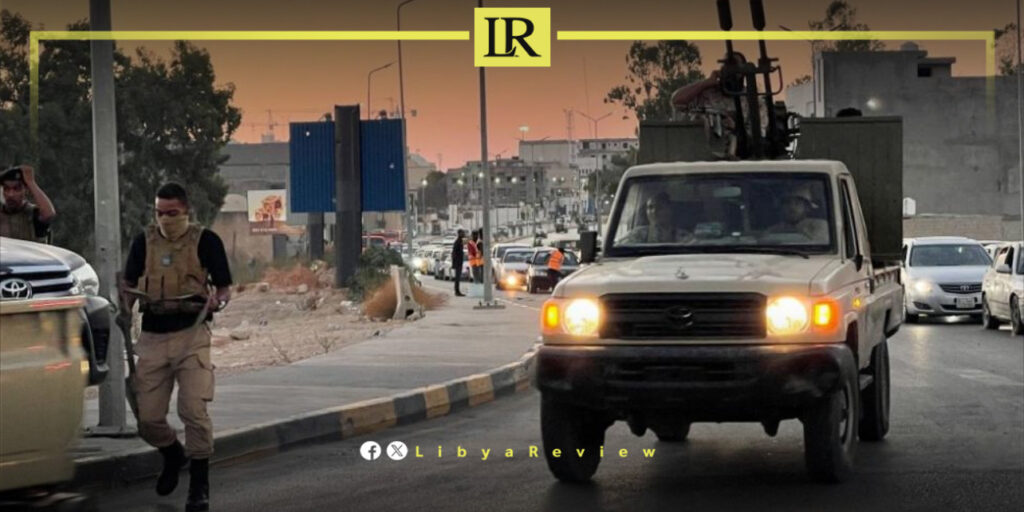A substantial convoy comprising approximately 200 armed vehicles affiliated with the First Support Force from Zawiya, led by Mohamed Bahroun, known as “Al-Far,” has entered the Libyan capital, Tripoli. Eyewitnesses reported the arrival, which has intensified concerns over potential escalations in the city’s already volatile security landscape.
Mohamed Bahroun, who holds the position of Deputy Head of the Agency for Countering Security Threats, is reportedly wanted in connection with the assassination of Abdelrahman Milad, also known as “Al-Bija.” Milad, a former Libyan Coast Guard commander, was sanctioned by the United Nations for his involvement in human trafficking and fuel smuggling. He was shot dead in Tripoli in September 2024.
euronews
The deployment of this convoy is perceived as a show of support for Abdul Ghani al-Kikli, commonly referred to as “Ghneiwa,” the head of the Stability Support Apparatus (SSA). This move comes amid heightened tensions in Tripoli, with fears that the influx of armed forces could lead to renewed clashes between rival factions vying for control in the capital.
The situation remains fluid, and residents are advised to exercise caution as the security dynamics in Tripoli continue to evolve.
Libya has been in chaos since a NATO-backed uprising toppled longtime leader Muammar Gaddafi in 2011. The county has for years been split between rival administrations.
Libya’s economy, heavily reliant on oil, has suffered due to the ongoing conflict. The instability has led to fluctuations in oil production and prices, impacting the global oil market and Libya’s economy.
The conflict has led to a significant humanitarian crisis in Libya, with thousands of people killed, and many more displaced. Migrants and refugees using Libya as a transit point to Europe have also faced dire conditions.
The planned elections for December 2021 were delayed due to disagreements over election laws and the eligibility of certain candidates. This delay has raised concerns about the feasibility of a peaceful political transition.
Despite the ceasefire, security remains a significant concern with sporadic fighting and the presence of mercenaries and foreign fighters. The unification of the military and the removal of foreign forces are crucial challenges.


